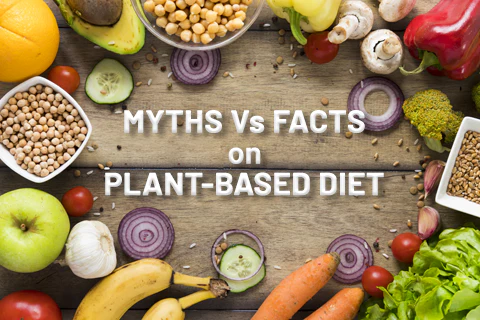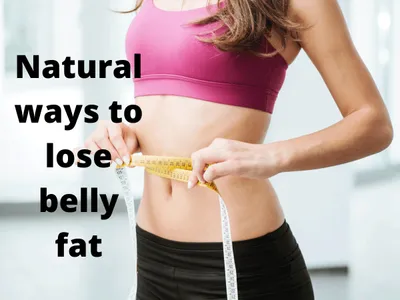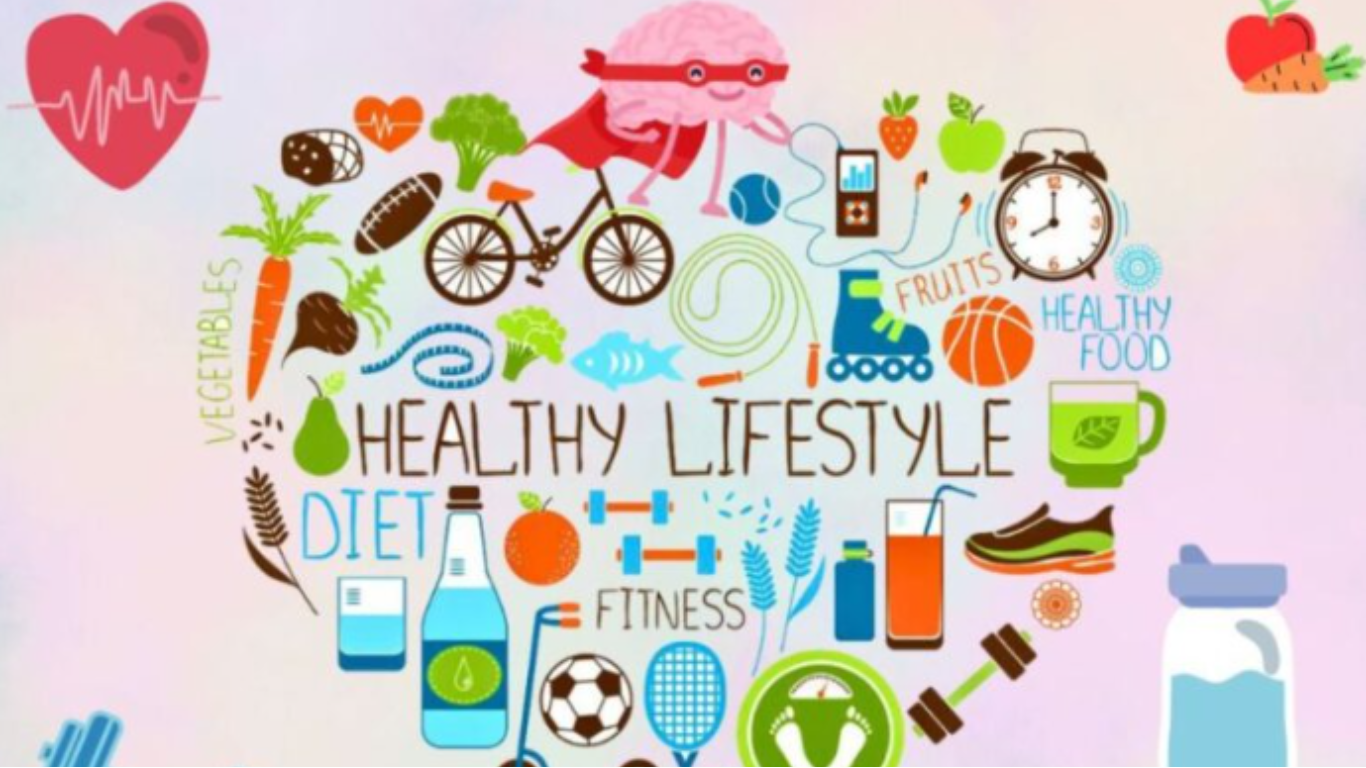Myths & Facts About Different Diets 🍏🍗🥑
With so many diet trends out there, it’s easy to fall for misconceptions and misleading claims. Whether it’s keto, vegan, intermittent fasting, or detox diets, let’s break down common myths and uncover the truth behind different diets.
1️⃣ Keto Diet (Low-Carb, High-Fat) 🥩🥑
✅ Fact: The ketogenic diet forces the body to use fat for energy instead of carbs.
❌ Myth: Eating too much fat will clog arteries and cause heart disease.
🔹 Reality: Healthy fats (avocados, nuts, olive oil) are good for heart health, but excessive saturated fats from processed meats can be harmful.
✅ Fact: Keto can help with weight loss and blood sugar control.
❌ Myth: You can eat unlimited bacon and butter on keto.
🔹 Reality: A healthy keto diet should include vegetables, lean proteins, and healthy fats, not just fatty meats.
✅ Fact: Keto can reduce appetite and cravings.
❌ Myth: Keto is the best diet for everyone.
🔹 Reality: Keto can be difficult to sustain, and some people experience side effects like the “keto flu.”
2️⃣ Vegan Diet (Plant-Based) 🌱🍎
✅ Fact: A well-balanced vegan diet is rich in fiber, vitamins, and antioxidants.
❌ Myth: Vegan diets lack protein.
🔹 Reality: Plant-based protein sources like lentils, tofu, quinoa, chickpeas, and nuts provide sufficient protein.
✅ Fact: Vegan diets can reduce the risk of heart disease and diabetes.
❌ Myth: Vegan diets are automatically healthy.
🔹 Reality: Processed vegan foods (vegan burgers, fries, desserts) can still be high in sugar, unhealthy fats, and additives.
✅ Fact: Going vegan can reduce environmental impact.
❌ Myth: Everyone should go vegan for health.
🔹 Reality: Some people may struggle with nutrient deficiencies (B12, iron, omega-3) and may need supplements.
3️⃣ Intermittent Fasting (IF) ⏳🍽️
✅ Fact: IF can help with weight loss and metabolic health.
❌ Myth: IF slows metabolism and leads to muscle loss.
🔹 Reality: IF actually boosts metabolism in the short term and preserves muscle mass when combined with a protein-rich diet.
✅ Fact: Fasting helps regulate blood sugar and insulin levels.
❌ Myth: You need to fast for extreme periods to see results.
🔹 Reality: Even shorter fasting windows, like 12–16 hours, can be effective.
✅ Fact: IF can improve brain health and longevity.
❌ Myth: You can eat anything you want during the eating window.
🔹 Reality: Overeating junk food after fasting negates the benefits.
4️⃣ Mediterranean Diet (Balanced & Heart-Healthy) 🫒🍷
✅ Fact: The Mediterranean diet is one of the healthiest for heart health.
❌ Myth: You need to drink red wine every day.
🔹 Reality: While moderate red wine has some antioxidants, it’s not essential for the diet’s benefits.
✅ Fact: This diet reduces inflammation and promotes longevity.
❌ Myth: It’s only for people living in Mediterranean countries.
🔹 Reality: Anyone can follow it by focusing on whole foods, olive oil, lean proteins, and fresh produce.
✅ Fact: The Mediterranean diet is easy to follow long-term.
❌ Myth: It’s only for weight loss.
🔹 Reality: While it supports healthy weight management, its main benefits are heart and brain health.
5️⃣ Detox Diets & Cleanses 🍋🥤
✅ Fact: Your body naturally detoxes through the liver, kidneys, and gut.
❌ Myth: You need juice cleanses to remove toxins.
🔹 Reality: Juice cleanses lack protein, fiber, and essential nutrients, making them unsustainable.
✅ Fact: Drinking plenty of water, eating fiber-rich foods, and exercising support natural detoxification.
❌ Myth: Detox teas and supplements speed up detox.
🔹 Reality: Many detox products contain laxatives and diuretics, which only make you lose water weight, not toxins.
✅ Fact: Whole foods like cruciferous vegetables, garlic, lemon, and green tea support natural detox.
❌ Myth: You need extreme fasting for detox.
🔹 Reality: A balanced diet with real foods is more effective than fasting or juice diets.
6️⃣ High-Protein Diets (Paleo, Carnivore) 🥩🍗
✅ Fact: Protein is essential for muscle growth, recovery, and metabolism.
❌ Myth: High-protein diets damage the kidneys.
🔹 Reality: Only people with pre-existing kidney disease need to limit protein.
✅ Fact: Protein helps reduce hunger and boost metabolism.
❌ Myth: You can’t eat carbs on a high-protein diet.
🔹 Reality: Some carbs, like vegetables and fruits, are nutrient-dense and beneficial.
✅ Fact: Animal and plant-based proteins can both support health.
❌ Myth: The carnivore diet (only eating meat) is the best for health.
🔹 Reality: Extreme diets lack key nutrients like fiber, vitamins, and antioxidants.
7️⃣ Low-Fat Diets 🥗🚫🍔
✅ Fact: Some fats are essential for brain health, hormone production, and absorption of vitamins.
❌ Myth: All fats are bad.
🔹 Reality: Healthy fats (avocado, nuts, olive oil, fish) improve heart and brain health.
✅ Fact: Reducing saturated and trans fats can lower heart disease risk.
❌ Myth: A low-fat diet is best for weight loss.
🔹 Reality: Balanced diets that include healthy fats are often more sustainable than extreme low-fat diets.
✅ Fact: Low-fat dairy and lean proteins can be part of a balanced diet.
❌ Myth: Low-fat foods are always healthier.
🔹 Reality: Many low-fat processed foods are high in sugar and additives, making them less healthy.
🔍 Key Takeaways
🔹 No single diet is perfect for everyone – choose based on your lifestyle, health needs, and goals.
🔹 Extreme diets are often unsustainable – balanced, whole-food-based eating is best for long-term health.
🔹 Focus on quality, not just quantity – whether it’s carbs, fats, or protein, prioritize nutrient-dense foods.
🔹 Listen to your body – experiment and find what works best for your energy, digestion, and well-being.




